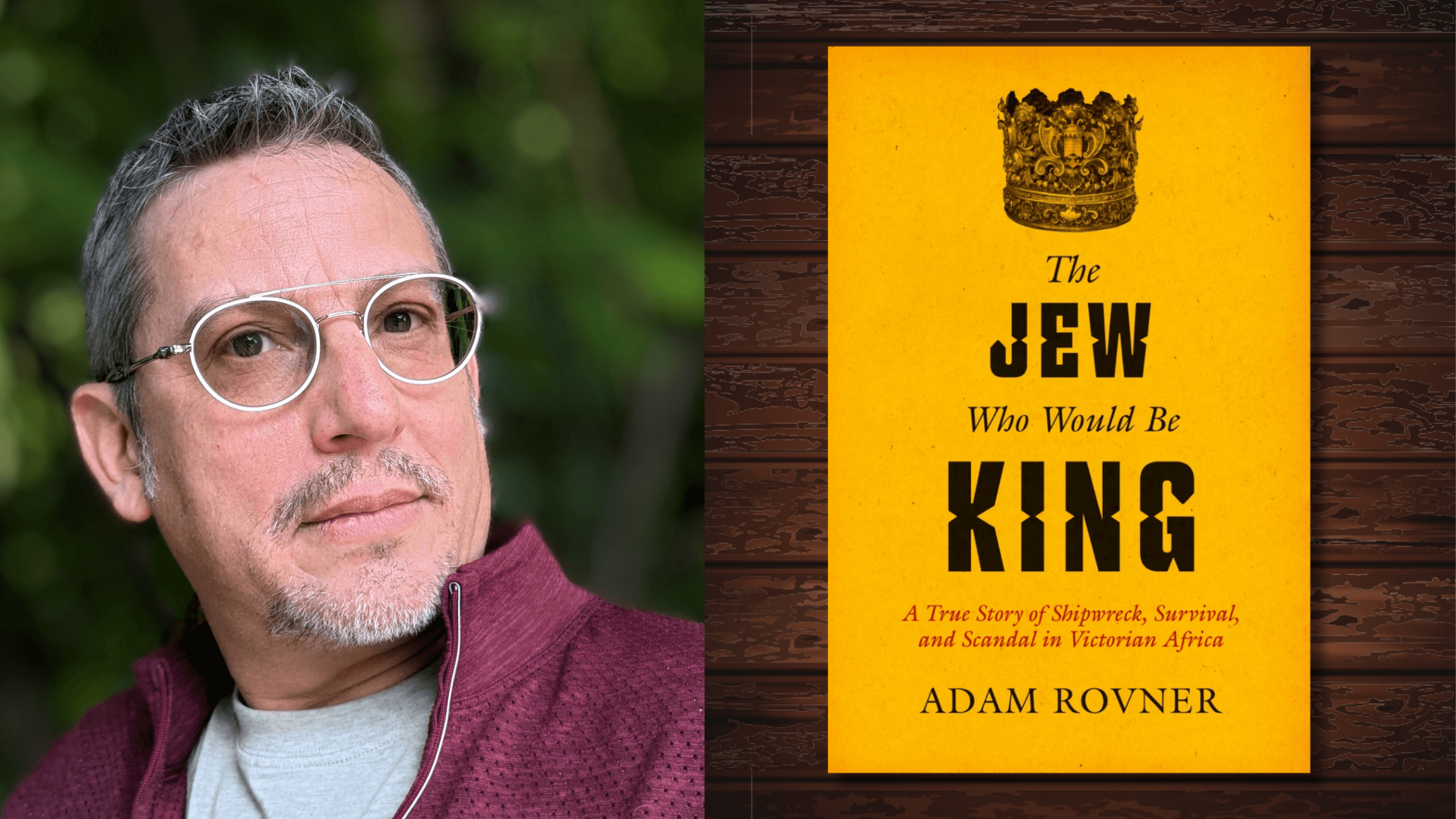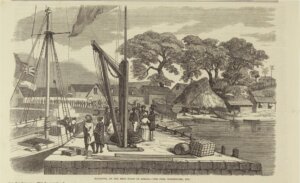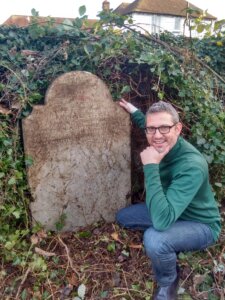How a Jewish boy from Canterbury became a Zulu chieftain
A new book tells the story of Nathaniel Isaacs, a 19th-century British Jew who played a complicated role in the colonization of Africa

Adam Rovner’s second book, coming out in April, documents the life of Nathaniel Isaacs, a Jewish adventurer who eventually became a Zulu Chieftain. Courtesy of Adam Rovner; cover by Kevin Barrett Kane/Canva
When he first read about a Jewish Zulu king in Africa, Adam Rovner didn’t believe it. He was doing research for his first book, In the Shadows of Zion, which documents proposals for a Jewish homeland outside of Israel, when he found a quote by Zionist scholar Israel Zangwill about “a Jew named Nathaniel Isaacs” who was “Chief of Natal.” It only took a few Google searches for Rovner to prove that Isaacs actually existed.
Rovner, a professor of English and Jewish literature at the University of Denver (and an occasional Forward contributor), was instantly intrigued. He began reading Isaacs’ book Travels and Adventures in Eastern Africa, one of the most highly regarded books on Zulu life at the time of its release in 1836.
“From there, it just became a complete and total obsession for me,” Rovner told me in a video interview.
After years of travelling across Europe and Africa, scouring Isaacs’ travel diaries, British government documents, and historical Zulu records, Rovner has written a new book on Isaacs’ life, The Jew Who Would Be King.
Born in 1808 in Canterbury, England, Isaacs was raised in a lower-middle class Jewish family. At 14, he became an apprentice to his uncle on the island of St. Helena, where he met Canadian seaman James Saunders King. Isaacs joined King on an expedition to Cape Town, the capital of England’s Cape Colony, which was in the southeast of present-day South Africa. This journey led Isaacs to become a central figure in England’s colonial enterprises in southern and western Africa. He eventually created his own colony on Matakong Island, off the coast of modern day Guinea.

For most of his life, Issacs was not a practicing Jew. Yet, as Rovner explains, Isaacs’ heritage still influenced the course of his life. At the time, Jews in England were viewed as untrustworthy, uncivilized and criminally inclined. Until they were granted full civil and political rights in 1858, they had scarce opportunities to ascend the socioeconomic ladder. The job of exploring foreign lands likely appealed to Isaacs as a means of escaping a restrictive society.
However, even on another continent, Isaacs had to conform to the Christian values of his birthplace. He built a chapel and Sunday school on his island in order to receive the approval of missionaries, who held sway with the government.
“He goes to lengths to record details of customs and ritual and language, which is not super common at that era. And I suspect that has something to do with his own marginality.”Adam RovnerAuthor of 'The Jew Who Would Be King'
Although contemporary historians debate the legitimacy of colonial accounts of African culture, through archival research, Rovner verified much of what Isaacs described in Travels and Adventures.
“He’s very insistent on the positive qualities of the Zulu people,” Rovner said. “He also has criticisms. But he goes to lengths to record details of customs and ritual and language, which is not super common at that era. And I suspect that has something to do with his own marginality, his own interest in these peoples.”
Rovner writes that pseudoscientists of the time were obsessed with comparing Black and Jewish phenotypes and lifestyles, to argue that both races belonged to a lower rung of human being. Scottish anatomist Robert Knox described “the Jewish physiognomy” of “large, massive, club-shaped, hooked nose[s]” as being among the many features “which stamp the African character of the Jew.” Isaacs himself wrote in his diary that King Shaka — despite being a native Zulu — probably had white ancestry and “a Hebrew expression,” likely due to Shaka’s reportedly prominent nose.
Rovner also notes that there was much speculation that a number of the African tribes were actually the long-lost tribes of Israel. Henry Francis Flynn, a friend of Isaacs and fellow explorer, believed the Zulus had adopted the practices of circumcision, Levirate marriage, and animal sacrifice from the Israelites. Leading Ashkenazi and Sephardic rabbis of London, Solomon Hirschell and David Meldola, sent letters with British explorers asking the Israelite tribes to share their customs and scriptures.
Isaacs’ own attitudes toward Black Africans were inconsistent. At times he called the Zulus barbaric, but he also defended their rights to colonial authorities. He helped broker the end of slaveholding among various chieftains, but, in the latter part of his life, was marred by allegations of illegal slaveholding and brutal torture against the native Africans. Based on testimonies of slave traders and reported victims, Rovner believes the accusations had merit. These complexities are what drew Rovner to Isaacs’ story, which disrupts romantic notions of colonial history.
“This is a figure who really was marginalized at home, [and] lived a marginal life abroad. He was fabulously successful, undoubtedly talented, surely brave and constitutionally hearty. But he also ends up not such a great guy,” Rovner said.

“Redemption narratives are so fundamental to American literature and self-understanding that it’s difficult to write a book in which it’s completely non-redemptive. It goes against the grain of these very essential categories that we understand lives and people’s behaviors by,” he added.
Isaacs eventually left Matakong and returned to England, maintaining proprietary rights to the island from afar. At the end of his life, Isaacs became active in the Jewish community, becoming a trustee of the New Hebrew Congregation in Liverpool. He died in 1872 and was buried in the Canterbury Jewish Cemetery.
Rovner points out that there really is no way to measure Isaac’s Jewishness, and that it was always something he lived with, whether he actively engaged with it or not. Issacs, Rovner writes, was “more Jewish than he wanted to be in England, and exactly as Jewish as he wanted to be in Africa.”

















